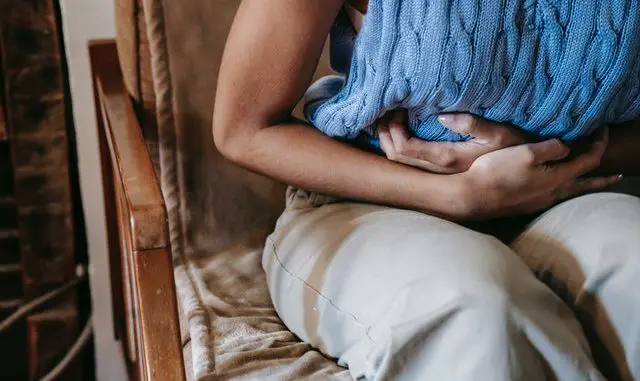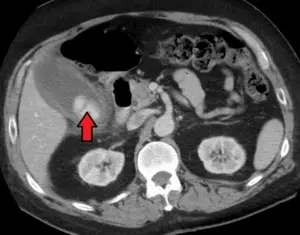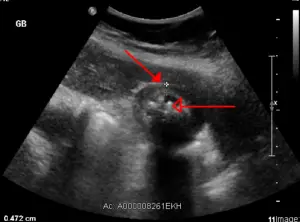

Gallbladder Inflammation (Cholecystitis)
This condition is usually caused by gallstones. These are small formations, usually composed of cholesterol, some salts and pigments. There are different types of gallstones, such as pigment stones, cholesterol stones and mixed stones. They differ in color, size and composition.
Small stones are usually asymptomatic and people don’t know they have them. These “silent stones” can be present for years (even decades) without causing any problems. However, once they become larger, they can cause some of the following problems:
- Belching
- Indigestion
- Abdominal pain
- Bloating
- Heartburn
- Vomiting
- Jaundice
- Nausea
- Diarrhea
Gallstones can cause cholecystitis. In fact, this is the most common cause of gallbladder inflammation. If a gallstone gets stuck in the bile duct, bile will build-up, which will further cause inflammation of the gallbladder.

Some tumors can lead to bile flow obstruction, which can lead to cholecystitis.
What Are the Symptoms of Gallbladder Inflammation?
- The pain in the abdomen
- Indigestion
- Mild fever
- Vomiting
- Chills
- Nausea
- Heartburn
- Jaundice
The risk factors include:
- Gender – if you are a female, you are at risk of developing gallstones. Women are more prone to gallstones than men are. Pregnant women are at greater risk.
- Age – the risk increases, as we grow older.
- Gallstones – as we said, most cases of cholecystitis are caused by gallstones. If you have a family history of gallstones, make sure to talk to your doctor in time. If diagnosed early, smaller stones can be eliminated with some natural remedies.
Gallbladder inflammation can result in serious complications. The gangrenous gallbladder is one of the problems that can result from cholecystitis. This condition is rare, but it is serious, and can even be fatal.
Cholecystitis can also cause gallbladder perforation.
To diagnose gallbladder inflammation, several methods are used:
- Imaging tests – ultrasound or CT scan are used for taking pictures of the gallbladder, and if there are any problems, they will be visible in these images.
- Blood tests can show that there is an inflammatory process in the body.
How to Treat Gallbladder Inflammation
- Cholecystitis is treated with antibiotics, but severe cases may require gallbladder surgery.
- If you have this condition, you will be hospitalized. Your doctor will carry out some tests to see how severe your condition is. After that, you will be given medications. If your condition is very serious, gallbladder surgery will be done.
- Your diet will have to be modified. In fact, if your condition is severe, you will be given fluids intravenously (in other words, you will have to fast for a while).
- Antibiotics will be helpful in fighting the infection. In case of severe pain, medications can be used to relieve the pain.


Hi, every time i used to check website posts here early in the
daylight, because i love to gain knowledge of more and more.